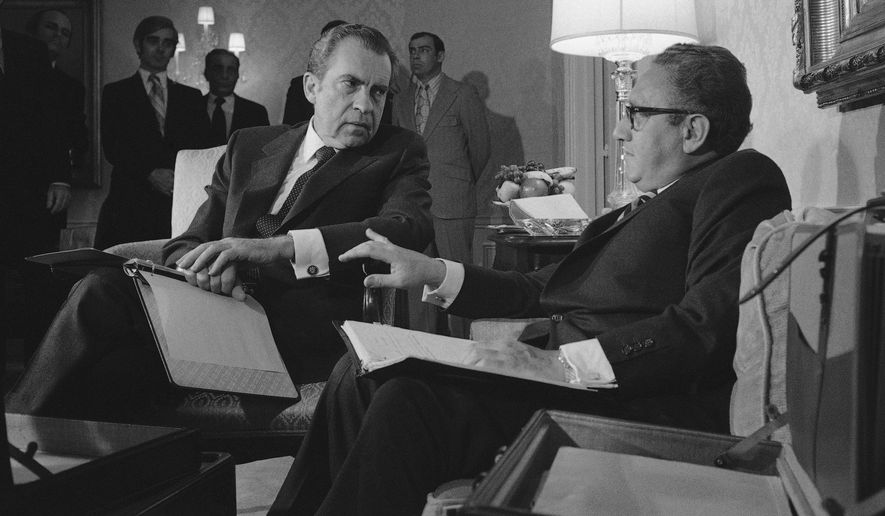Henry Kissinger – the sage of American diplomats, embodiment of realpolitik, and driving force of the detente experiment of the 1970s – celebrates his 100th birthday on May 27. The occasion is spurring a renewal of the intense debate over Mr. Kissinger’s legacy: brilliant diplomat or war criminal?
Some scholars revile Mr. Kissinger for his central roles in the secret bombing of Cambodia in 1969 and the coup that overthrew the democratically elected leader of Chile in 1973, to name two black marks on his record. Others point to his peace-building in the Middle East and the open door to Mao’s China as major accomplishments.
In this episode of History As It Happens, historian Thomas Schwartz discusses why views of the former national security adviser and secretary of state remain so polarized decades after he left power.
“Our views on Kissinger are as polarized as our views on many issues today. Kissinger to many people represents a type of Cold War foreign policy that they deeply reject, an amoral approach to dealing with nations. Yet at the same time there are many who admire Kissinger, the skill and balance Kissinger brought to foreign policy,” said Mr. Schwartz, the author of “Henry Kissinger and American Power: A Political Biography.”
To Mr. Kissinger’s defenders, the bombing of Cambodia, which endured until Congress cut off funding in August 1973, was justified because North Vietnamese forces had already violated Cambodia’s neutrality by setting up bases and supply lines along the border with Vietnam. They used the bases to launch lethal attacks against U.S. troops in South Vietnam for years prior to President Nixon’s decision, in spring 1970, to launch a ground invasion into Cambodia to try to destroy the enemy sanctuaries.
SEE ALSO: History As It Happens: A decent interval
To critics, the carpet bombing, as it spread deeper into the country after the initial “secret” phase of 1969-70, killed tens, if not hundreds, of thousands of civilians and destabilized Cambodia, which soon fell to the fanatical Khmer Rouge.
History As It Happens is available at washingtontimes.com or wherever you find your podcasts.




